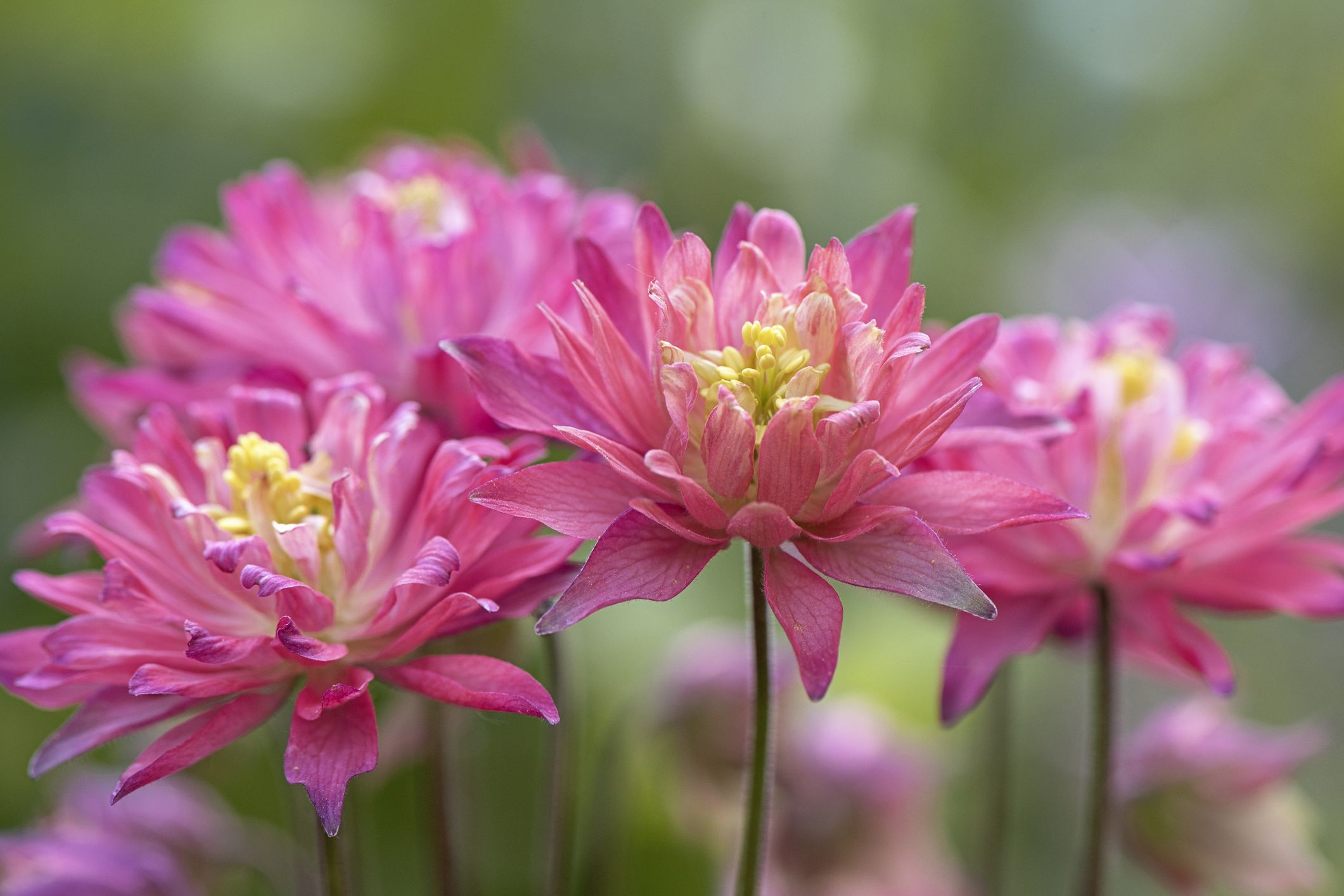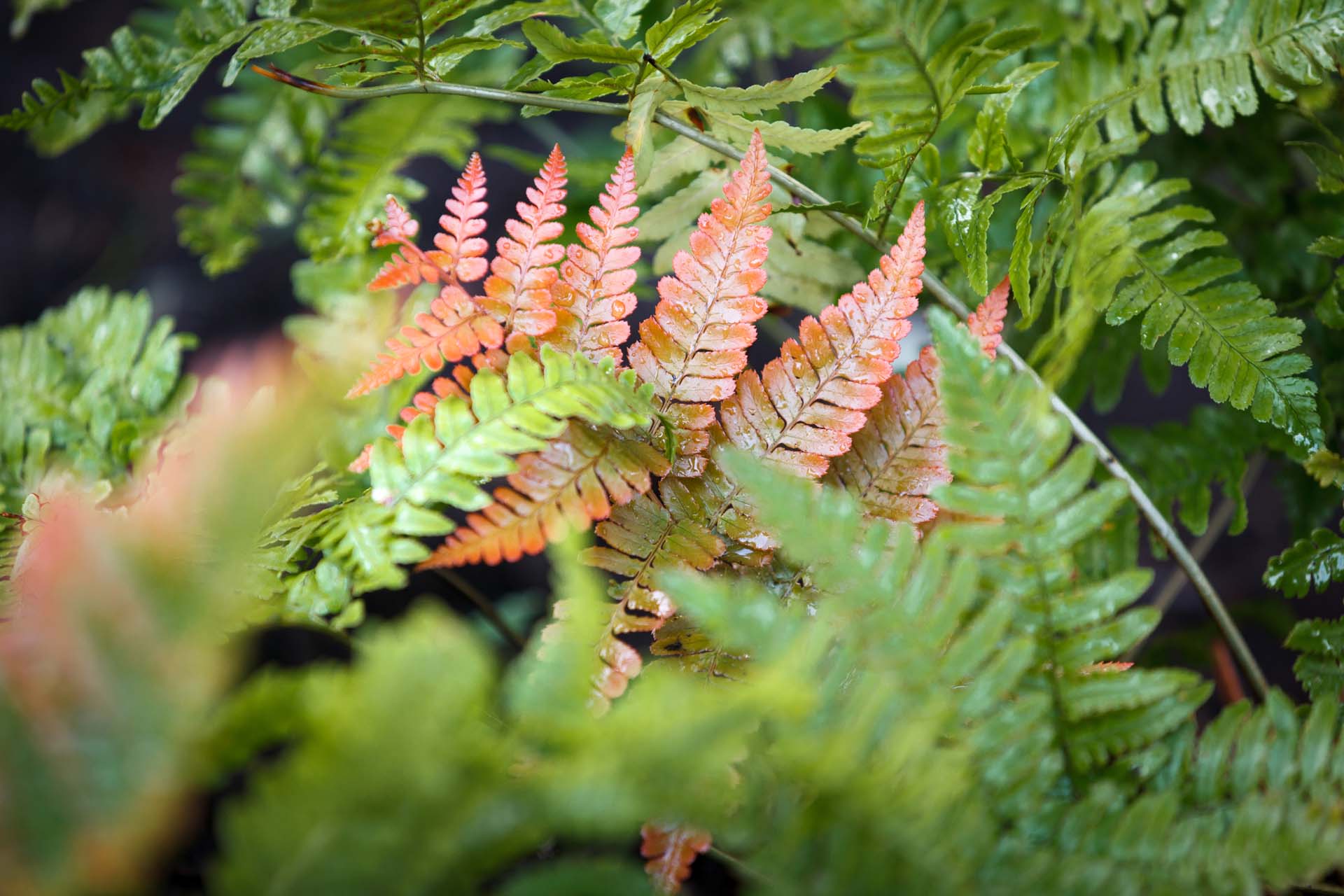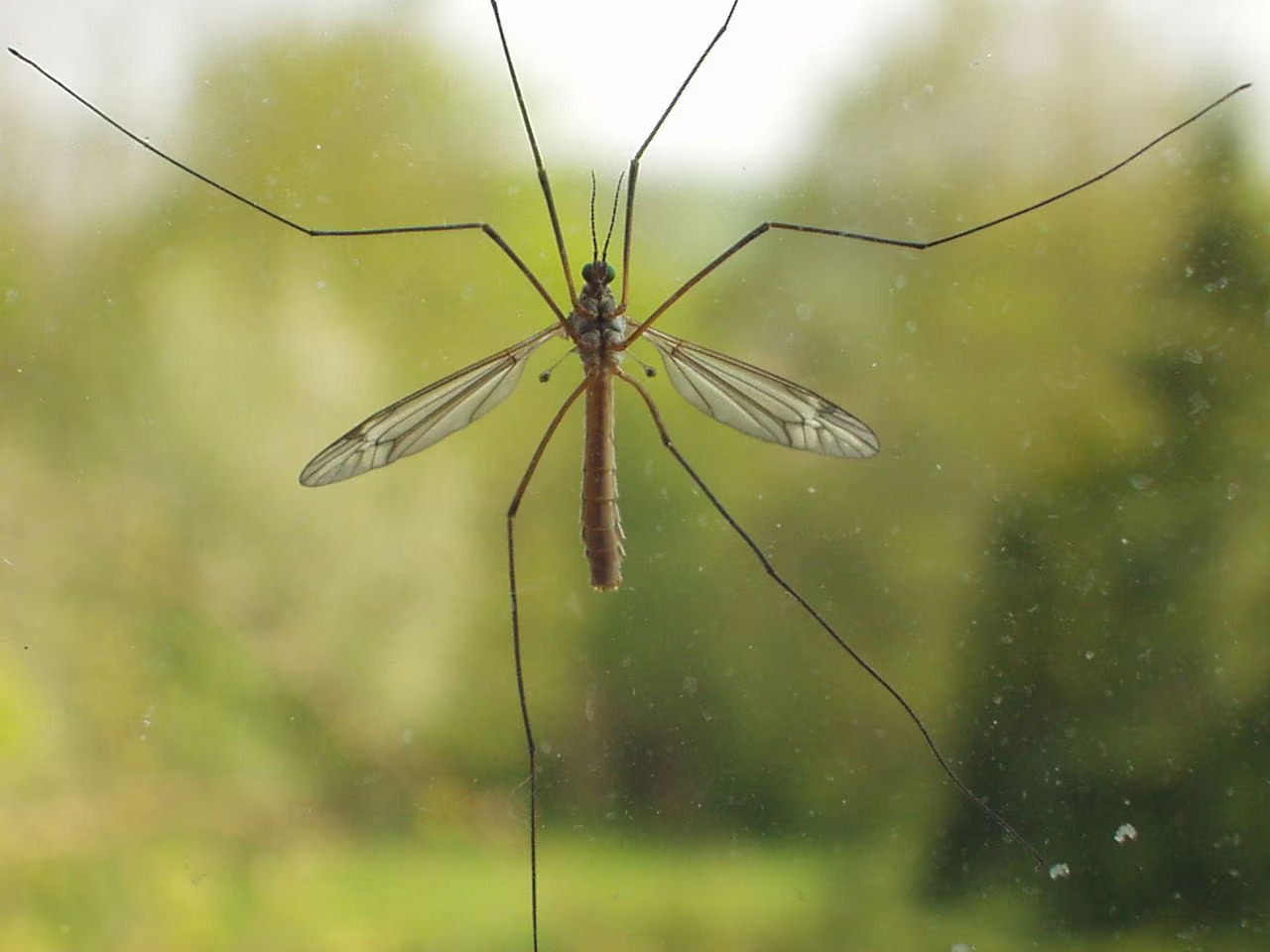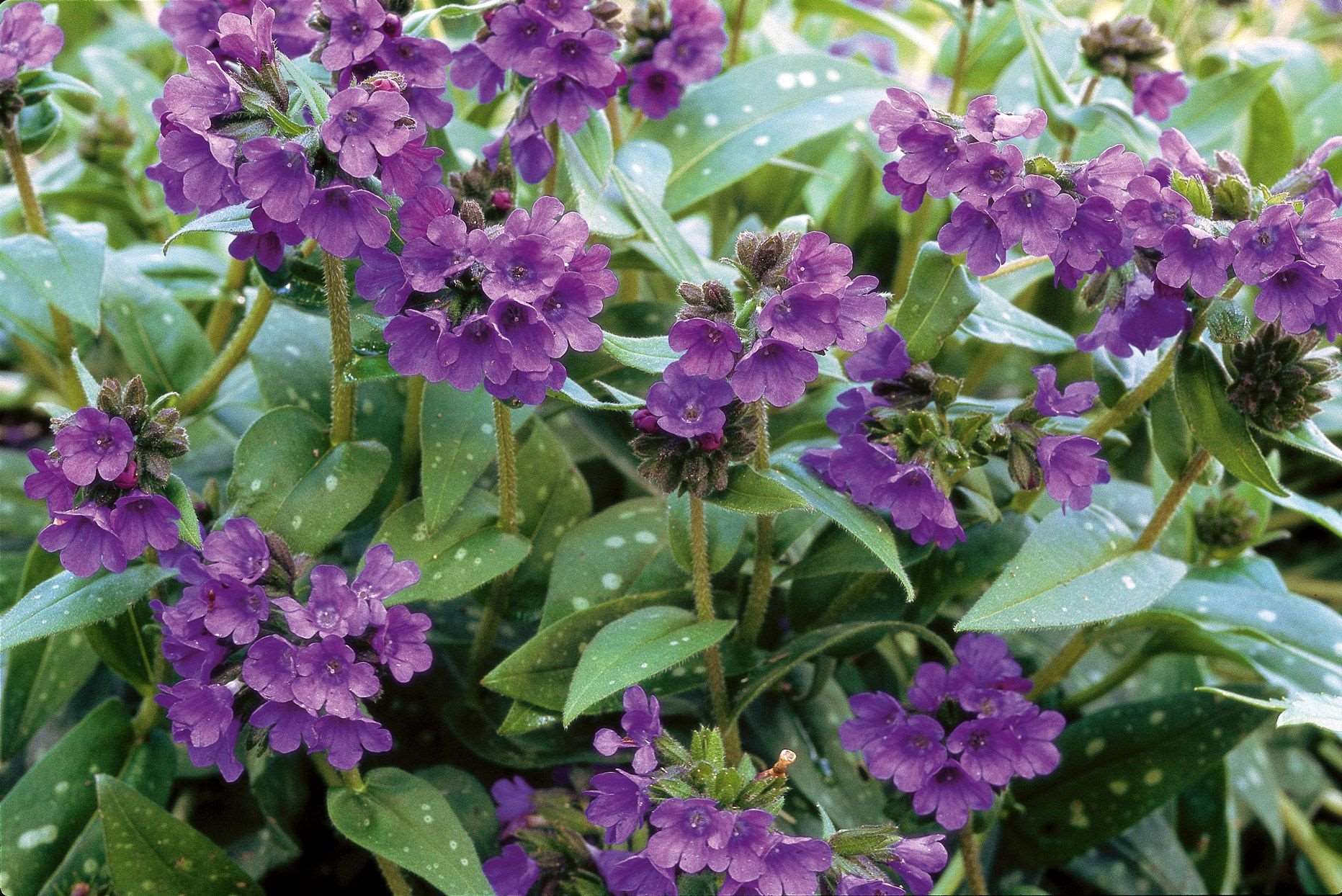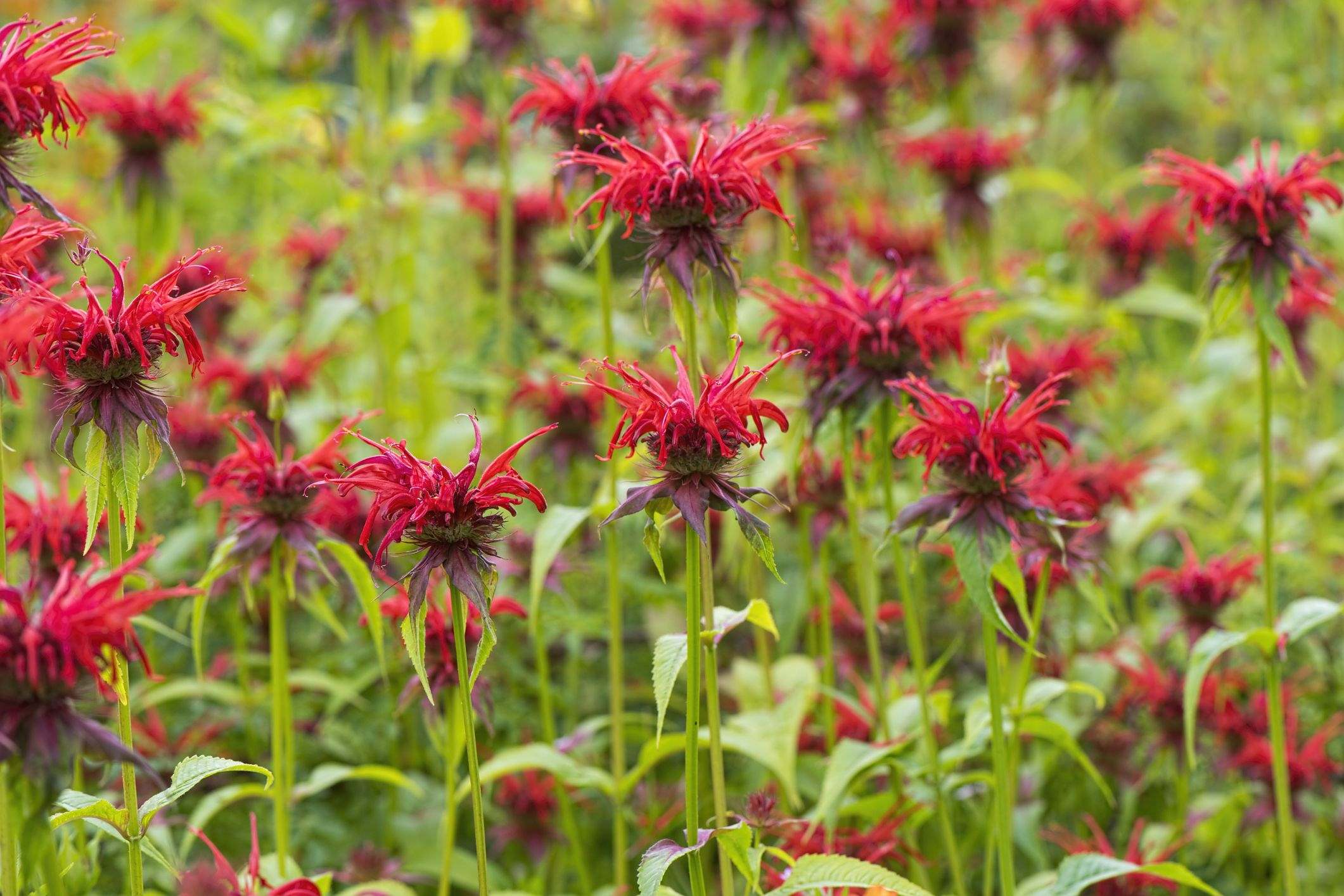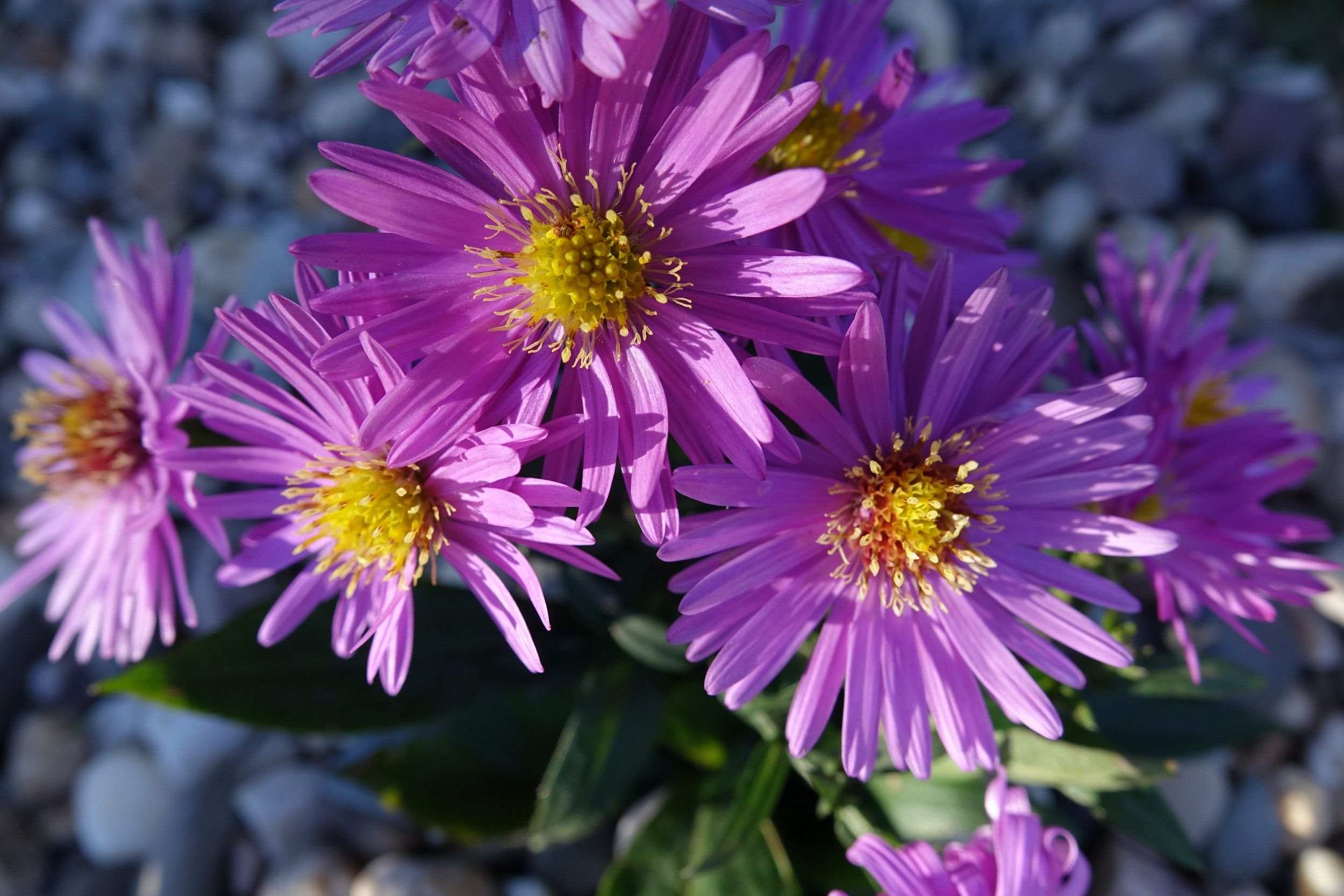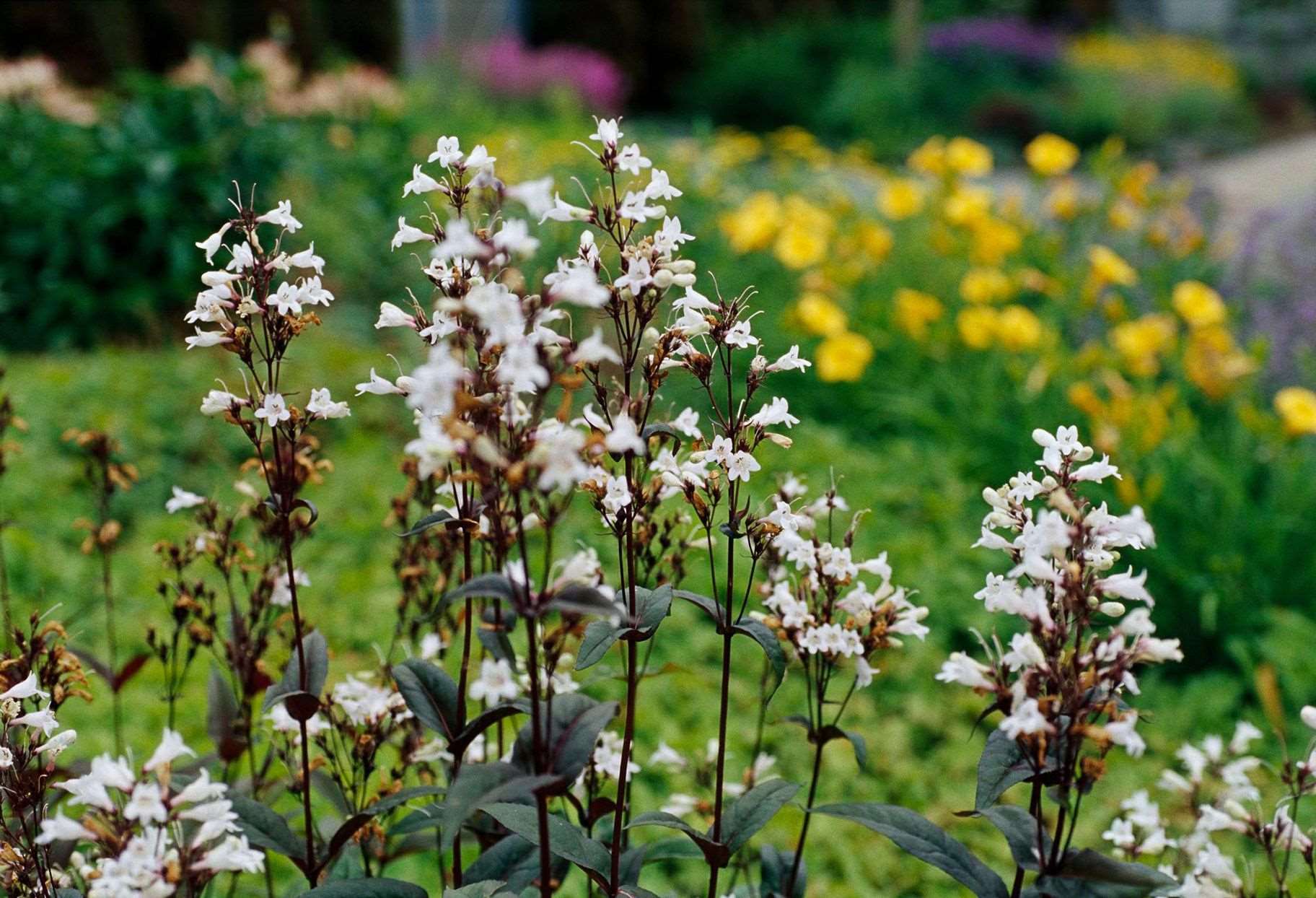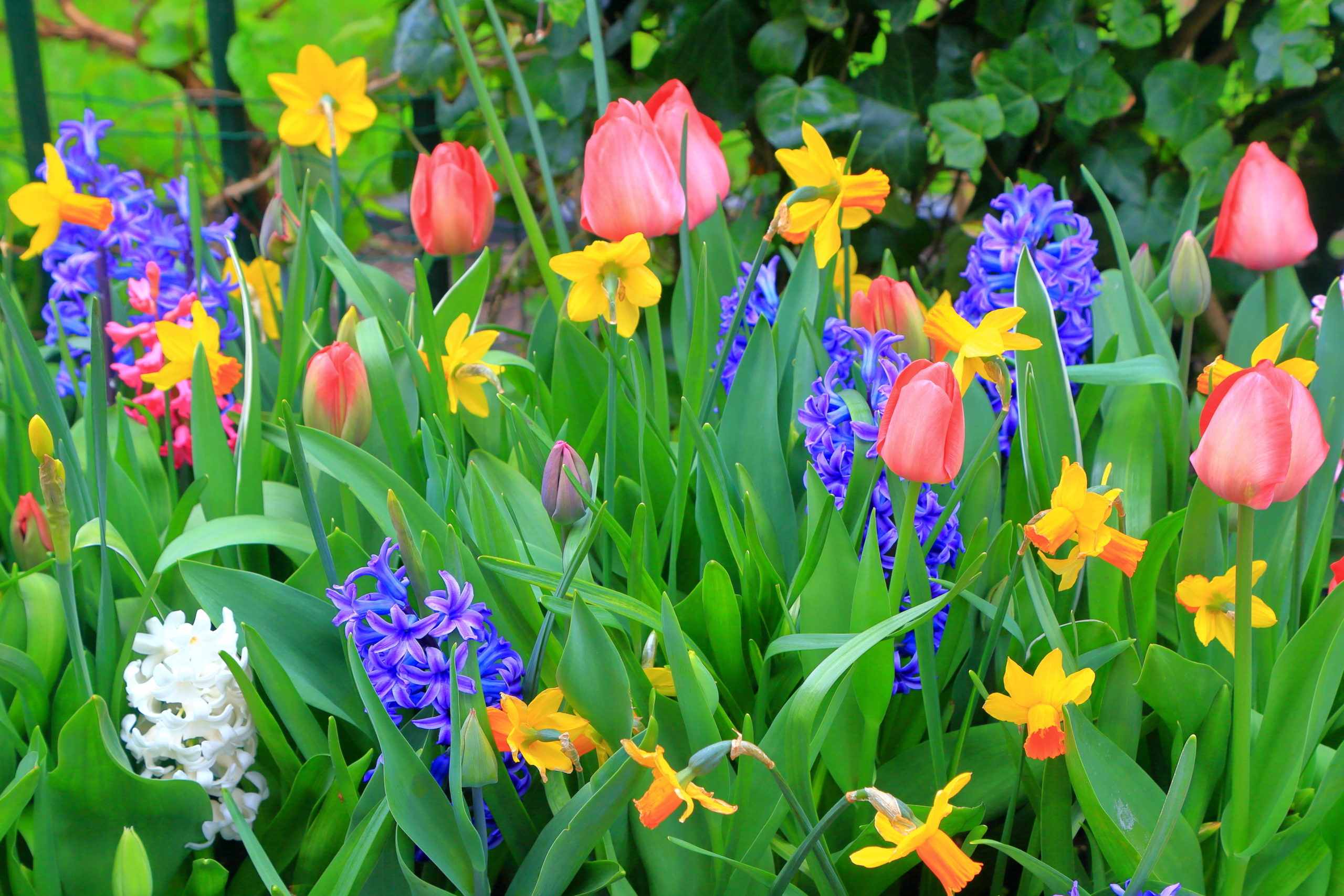Home>Types of Gardening>Ornamental Gardening>What Perennials Repel Mosquitoes


Ornamental Gardening
What Perennials Repel Mosquitoes
Modified: January 29, 2024
Discover how ornamental gardening can be both beautiful and functional with these perennials that repel mosquitoes. Create a mosquito-free oasis in your garden today!
(Many of the links in this article redirect to a specific reviewed product. Your purchase of these products through affiliate links helps to generate commission for Chicagolandgardening.com, at no extra cost. Learn more)
Table of Contents
Introduction
Mosquitoes are not only a nuisance but can also pose various health risks. From itchy bites to the transmission of diseases such as malaria and dengue fever, these pesky insects can make spending time in your garden unbearable. While there are many commercial mosquito repellents available on the market, they often contain harsh chemicals that can be harmful to your health and the environment.
An alternative and natural approach to repelling mosquitoes in your garden is by using perennial plants. Perennials are plants that live for more than two years and can provide long-lasting protection against these unwanted pests. These plants not only add beauty and color to your garden but also emit fragrances and oils that repel mosquitoes.
By strategically planting mosquito-repellent perennials in your garden, you can create a natural barrier against these biting insects. This not only enhances your outdoor experience but also reduces the need for synthetic repellents, making it a safer and eco-friendly option.
In this article, we will explore the benefits of using perennials to repel mosquitoes, the factors to consider before planting them, and the top perennial plants that are known to effectively repel mosquitoes. We will also provide tips on how to plant and maintain these perennials to maximize their mosquito-repellent properties.
So, if you want to enjoy your garden without the annoyance of mosquito bites and the worry of mosquito-borne diseases, keep reading to discover the wonders of mosquito-repellent perennials.
Benefits of Using Perennials to Repel Mosquitoes
Using perennials to repel mosquitoes offers numerous benefits for both you and your garden. Here are some key advantages:
- Natural and Chemical-Free: Perennials provide a natural and chemical-free solution for repelling mosquitoes. Unlike synthetic mosquito repellents, perennials emit fragrances and oils that are effective at repelling mosquitoes without the need for harmful chemicals.
- Environmentally Friendly: By utilizing perennials, you are reducing your reliance on synthetic pesticides and insecticides, which can harm beneficial insects and disrupt the ecosystem. Choosing natural repellents contributes to a healthier and more sustainable garden environment.
- Long-Lasting Protection: Perennials are long-lived plants, meaning they provide continuous protection against mosquitoes season after season. Once established, they require minimal maintenance and will continue to repel mosquitoes year after year.
- Attractiveness and Aesthetics: Mosquito-repellent perennials not only serve a functional purpose but also add beauty and color to your garden. They can be incorporated into flower beds, patio containers, or even used as border plants, enhancing the overall visual appeal of your outdoor space.
- Multi-Purpose Plants: Many mosquito-repellent perennials have additional benefits beyond repelling mosquitoes. Some plants have medicinal properties, while others attract pollinators, helping to support overall garden health and biodiversity.
By harnessing the natural power of perennials, you can create a mosquito-free garden environment that is safe, eco-friendly, visually appealing, and supports the overall health of your garden ecosystem. So let’s dive into the factors to consider before choosing and planting mosquito-repellent perennials.
Factors to Consider Before Planting Perennials
Before you start planting mosquito-repellent perennials in your garden, there are several factors to consider to ensure their success and effectiveness. Here are some key points to keep in mind:
- Climate and Hardiness: Different perennials thrive in different climates. Consider your local climate and choose perennials that are suitable for your region. Check the hardiness zone of the plant to ensure it can withstand the temperatures and conditions of your area.
- Sunlight Requirements: Most perennials require a certain amount of sunlight to grow and flourish. Determine the sunlight conditions in your garden and choose plants that match those requirements. Some perennials can tolerate partial shade, while others thrive in full sun, so make sure to consider this factor.
- Soil Type and Drainage: Different perennials have specific soil preferences. Assess the type of soil in your garden, whether it’s sandy, loamy, or clayey, and choose plants that are well-suited to that soil type. Additionally, ensure that the chosen location has adequate drainage to prevent waterlogging, as excessive moisture can be detrimental to perennials.
- Space Availability: Consider the available space in your garden before selecting perennials. Some plants may spread and require more room to grow, while others are more compact. Plan ahead and allocate sufficient space to accommodate the growth of your chosen mosquito-repellent perennials.
- Companion Planting: Certain plants have natural affinities and can enhance each other’s growth and insect-repellent properties when planted together. Research companion plants that pair well with your selected mosquito-repellent perennials to create a synergistic planting scheme that maximizes their effectiveness.
- Maintenance and Care: Consider the level of maintenance and care required for the chosen perennials. Some plants may be low-maintenance, requiring little intervention once established, while others may need regular pruning, deadheading, or dividing. Align your gardening preferences and available time with the maintenance needs of the chosen perennials.
By taking these factors into account, you can select the most suitable mosquito-repellent perennials that will thrive in your garden and effectively repel mosquitoes. Now, let’s explore some of the top perennial plants known for their mosquito-repellent properties.
Top Perennial Plants That Repel Mosquitoes
When it comes to choosing mosquito-repellent perennials, there are several options available. Here are some of the top perennial plants known for their ability to repel mosquitoes:
- Lavender: Lavender is not only a beautiful and fragrant plant but also acts as a natural mosquito repellent. Its strong scent masks the odor that attracts mosquitoes, keeping them at bay. Plant lavender in well-draining soil and place it in a sunny location for optimal growth.
- Citronella Grass: Citronella grass contains citronella oil, which is commonly used in mosquito repellents. This perennial plant emits a lemony fragrance that mosquitoes find unpleasant. Grow citronella grass in a large container or in well-draining soil with full sun exposure.
- Marigold: Marigolds not only add vibrant color to your garden but also repel mosquitoes with their distinctive scent. The flowers produce a natural chemical called pyrethrum, which acts as a repellent. Plant marigolds in full sun and well-draining soil to enjoy their repelling properties.
- Rosemary: Rosemary is a versatile herb that is well-known for its culinary uses. However, its strong aroma also acts as a deterrent for mosquitoes. Plant rosemary in a well-draining soil mix and place it in a sunny spot to benefit from its mosquito-repellent properties.
- Peppermint: Peppermint, with its refreshing scent, is an excellent natural mosquito repellent. The strong fragrance masks the mosquito-attracting odors, keeping them away. Grow peppermint in a container or in a controlled area, as it can spread rapidly and take over your garden.
- Catnip: Catnip is a member of the mint family and is known to repel mosquitoes effectively. The active ingredient nepetalactone, found in catnip, has shown to be more effective than DEET, a common synthetic mosquito repellent. Plant catnip in well-draining soil and provide it with plenty of sunlight.
These are just a few examples of mosquito-repellent perennials that you can incorporate into your garden. Remember to consider the specific growing requirements of each plant and select the ones that are well-suited to your garden conditions. Now, let’s move on to how to plant and maintain these perennials for optimal mosquito-repellent results.
How to Plant and Maintain Perennials to Repel Mosquitoes
Planting and maintaining mosquito-repellent perennials requires some careful consideration and regular care. Follow these tips to ensure optimal growth and mosquito-repellent effectiveness:
- Site Preparation: Choose a suitable location in your garden that provides the necessary sunlight and soil conditions for the selected perennials. Prepare the soil by removing any weeds, loosening it, and adding organic matter to enhance its fertility and drainage.
- Planting: Dig a hole slightly larger than the root ball of the perennial and place it in the hole at the same level as it was in the container. Backfill the hole with soil, gently pressing it around the plant’s base. Water the plant thoroughly after planting to promote root establishment.
- Watering: Provide regular watering to your mosquito-repellent perennials, especially during dry periods. Water deeply, allowing the soil to become moist but not waterlogged. To avoid fungal diseases, water at the base of the plant and avoid wetting the foliage.
- Fertilizing: Maintain the health of your perennials by providing them with periodic fertilization. Use a balanced organic fertilizer according to the manufacturer’s instructions. Avoid over-fertilizing, as it can lead to excessive leaf growth and diminished mosquito-repellent properties.
- Pruning: Regularly prune your perennials to maintain their shape, remove dead or diseased foliage, and promote air circulation. Pruning also helps to encourage new growth and stronger fragrance production, enhancing their mosquito-repellent effectiveness.
- Dividing: Some perennials benefit from occasional division to rejuvenate and expand their growth. Dividing also helps to control their size and prevent overcrowding. Follow the specific division guidelines for each plant and replant the divided sections in suitable locations.
- Pest and Disease Control: Monitor your perennials for any signs of pests or diseases and take appropriate action if necessary. Use organic methods to control pests, such as handpicking or using natural insect repellents, to avoid compromising the mosquito-repellent properties of the plants.
By following these planting and maintenance practices, you can ensure the health and effectiveness of your mosquito-repellent perennials. Remember to stay consistent and attentive to the needs of your plants, and they will reward you with a mosquito-free garden environment.
While mosquito-repellent perennials are an effective natural solution, there are also other methods you can incorporate to enhance mosquito control in your garden.
Other Natural Methods to Repel Mosquitoes
In addition to planting mosquito-repellent perennials, there are other natural methods you can employ to further enhance mosquito control in your garden. Here are some additional strategies:
- Remove Standing Water: Mosquitoes breed in standing water, so regularly inspect your property for any sources of stagnant water, such as open containers, clogged gutters, or birdbaths. Empty, clean, or cover these areas to prevent mosquito breeding.
- Introduce Mosquito-Eating Fish: If you have a pond or water feature in your garden, consider introducing mosquito-eating fish such as goldfish or guppies. These fish feed on mosquito larvae, helping to reduce the mosquito population naturally.
- Install Mosquito-Repellent Lighting: Opt for outdoor lighting that repels mosquitoes. LED lights with yellow or amber hues are less attractive to mosquitoes compared to traditional white lights. By using mosquito-repellent lighting, you can enjoy your outdoor spaces without the annoyance of swarming mosquitoes.
- Use Natural Repellents: Apply natural mosquito repellents to exposed skin when spending time outdoors. Essential oils such as citronella, lemongrass, and eucalyptus have mosquito-repellent properties. Be sure to follow the instructions on product labels and reapply as needed.
- Encourage Natural Predators: Attract natural predators of mosquitoes to your garden, such as bats, birds, and dragonflies. Create habitats that are welcoming to these beneficial creatures by providing shelter, food sources, and water features.
- Plant Mosquito-Repellent Herbs: In addition to perennial plants, consider incorporating mosquito-repellent herbs such as basil, mint, and lemon balm. Their strong aromas naturally repel mosquitoes and can be used in cooking or making natural repellent sprays.
By combining these natural methods with the use of mosquito-repellent perennials, you can create a multi-layered defense against mosquitoes in your garden. Remember to be consistent in your efforts and regularly assess the effectiveness of these strategies.
With these tips and techniques, you can enjoy your outdoor space mosquito-free, creating a pleasant and inviting environment for relaxation and enjoyment.
Conclusion
Mosquitoes can quickly put a damper on your outdoor activities and pose health risks. Fortunately, by utilizing mosquito-repellent perennials and implementing other natural methods, you can create a garden that is both beautiful and mosquito-free.
Planting mosquito-repellent perennials such as lavender, citronella grass, marigold, rosemary, peppermint, and catnip can provide a natural and sustainable solution. These plants emit fragrances and oils that effectively repel mosquitoes, making your outdoor space more enjoyable.
Before planting, consider factors such as climate, sunlight, soil, and space availability to ensure the success of your perennials. Regular maintenance, including proper watering, pruning, and fertilizing, is essential to maximize their mosquito-repellent properties.
In addition to perennials, incorporate other natural methods to enhance mosquito control. Remove standing water, introduce mosquito-eating fish, use mosquito-repellent lighting, apply natural repellents to your skin, encourage natural predators, and plant mosquito-repellent herbs.
By combining these strategies, you can create a multi-layered defense against mosquitoes, reducing the need for synthetic repellents and creating a safer, healthier, and more enjoyable outdoor environment.
So, why let mosquitoes ruin your time outside when you can create a garden filled with beautiful perennials that naturally repel these pesky insects? Take advantage of the wonders of mosquito-repellent perennials and create an inviting and mosquito-free garden oasis for yourself and your loved ones.
Get started today, and enjoy the benefits of a mosquito-free garden that not only adds beauty and color but also promotes a safe and natural outdoor experience.


